'Expats' breakout Sarayu Blue isn't worried about being 'unsympathetic': 'Not my problem'
Spoiler alert! This story contains details about Episode 5 of "Expats" (now streaming on Amazon Prime Video).
NEW YORK ‒ Nicole Kidman delivers another harrowing performance in "Expats," playing a marooned mom whose young son goes missing in Hong Kong.
But in the limited series' fifth episode, the Oscar winner cedes the spotlight. The 90-minute installment centers on Essie (Ruby Ruiz) and Puri (Amelyn Pardenilla), Filipino women working for the affluent Margaret (Kidman) and her friend, Hilary (Sarayu Blue). Fed up with her unfaithful husband, David (Jack Huston), Hilary beckons Puri to get drunk together one night, and excitedly gives her a makeover as she vents about her shattered marriage. But their chummy bond evaporates the next morning as a hungover Hilary barks orders at Puri in the episode's most devastating scene.
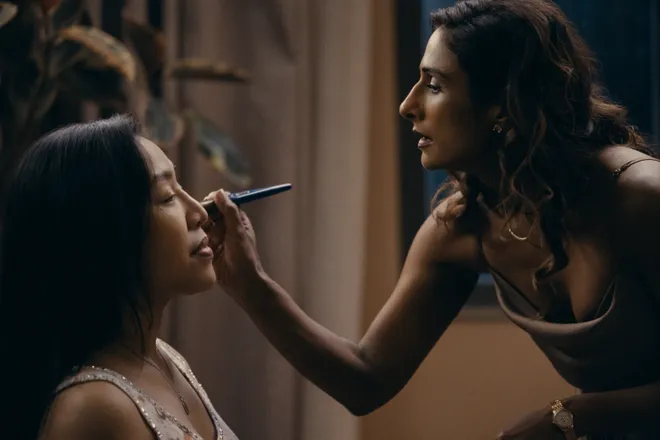
College grad Mercy (Ji-young Yoo) also comes into focus. She was looking after Margaret's son when he disappeared, and copes with her guilt over losing him by having an affair with David. Eventually, she opens up about the incident to new love interest Charly (Bonde Sham), who gently consoles her during a late-night swim.
Blue and Yoo sat down with USA TODAY to discuss their characters. (Edited and condensed for clarity.)
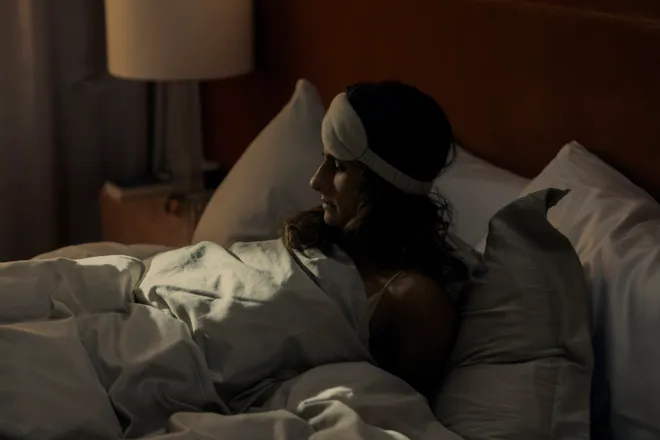
Question: After that night of genuine connection, Hilary speaks to Puri like she's less than human. What did you make of that switch?
Sarayu Blue: It’s so important that we see that shift. (Director Lulu Wang) is not afraid to get into the mess of it. Somebody asked me, “Were you worried about Hilary being unsympathetic?” I can’t think about that; that’s actually not my problem. To tell the story, Hilary has to be unlikable at certain points. It’s uncomfortable, but it’s part of Puri’s story. When I started reading the fifth episode, it was just goosebumps. That episode is really the show.
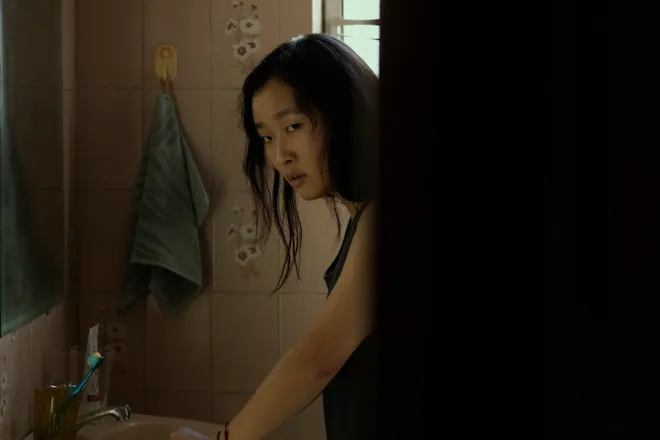
Ji-young, what was it like to film the hug between Mercy and Charly in the pool?
Ji-young Yoo: It was very cathartic. Mercy is trying to push down everything she’s feeling because once those floodgates open, they can’t close. She can't deal with the immensity of the guilt. So that monologue, we kept cutting it down verbally; it got a little shorter every take. We wanted it to feel like she was just trying to state every fact very cleanly, because if she let herself feel any of it, it was going to all crumble. The hug is so beautiful because it’s Charly seeing all the pain she’s going through and embracing it.
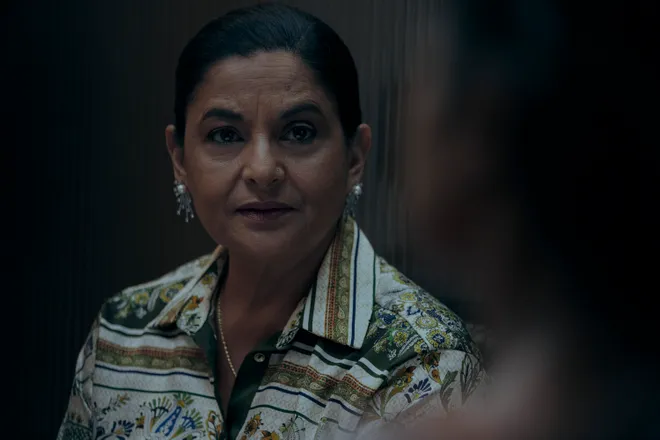
One of my favorite dynamics is between Hilary and her mom, Brinder (Sudha Bhuchar). What resonated with you about that relationship?
Blue: I was super drawn to how authentic it is. As soon as Brinder gets out of that car (to visit), Hilary is 16 again. She’s so cutting and so subtle about the cuts, but there is a love there. It makes me think of my mother and I: We can be fighting one second and laughing the next.
Yoo: I love your body language when she gets out of the car. Hilary is so powerful and her posture is amazing, and then you just see her slump like a tube of toothpaste.
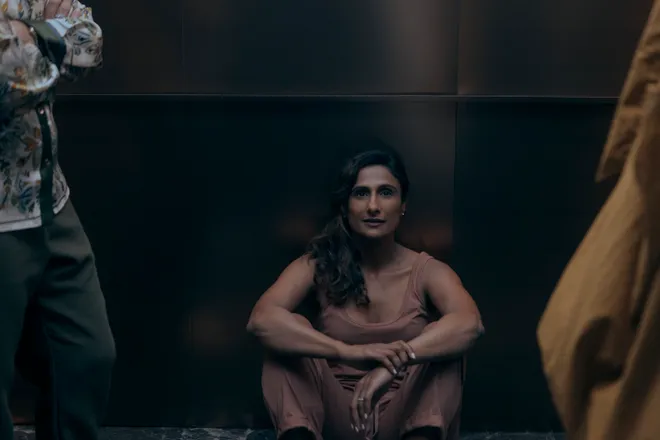
Hilary has a powerful monologue about trying to find makeup that matched her skin tone as a kid. But she also used it when her dad got violent, in order to hide her mother's bruises. How did you prepare to shoot that?
Blue: That stuff was so raw, so I spoke with some people who had experienced such things. Also, the writing of the monologue, and that “50 shades of fair” line, is so real. I really didn’t have makeup (that complemented me) growing up. I remember during shooting, it was hard for me to keep it together. There was a take where Lulu said, “Can you do one where you try not to cry?” And that was the take. Because that's Hilary: The journey is watching it all fall apart and she’s still holding on.
Did you have any input behind the scenes?
Blue: We had Gursimran Sandhu in the writers’ room, who is South Asian. So there is a reason the mother-daughter relationship and the makeup stuff is so specific. Also, one of the moments I was able to bring was in the makeup monologue, when I say “my big Indian nose.” That’s something I had been bullied about via the wonderful internet, and it just came out during one of the takes.
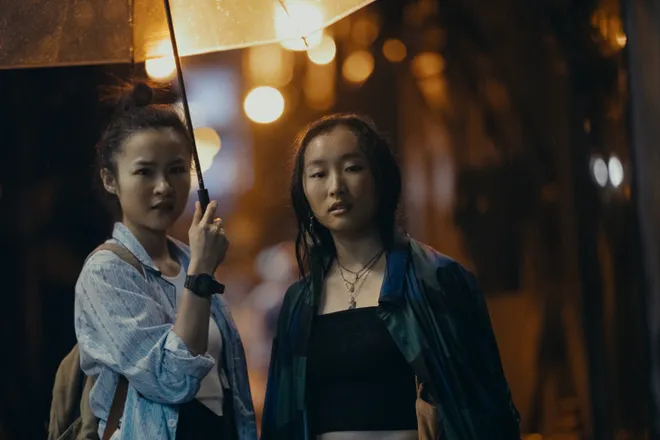
Ji-young, how would you contrast Mercy's relationships with David and Charly?
Yoo: With David, it’s not a love connection at all. Both of them, for different reasons, see themselves as people who are deserving of punishment. When they find each other, they realize they can dig into one another’s wounds in a way that is cathartic in a very dark sense. They’re able to punish one another through words and sex and treacherous, taboo territory.
Charly is a complete 180. What’s interesting is that Charly in (Janice Y.K. Lee's) book is a man, and it was changed in the series. So much of Mercy’s wounds come from the older women in her life: her mother and the women at church being very cruel to her. Her relationship with Charly is one of the first times she experiences unconditional love. To also receive that from a woman adds a lot of beautiful nuance.
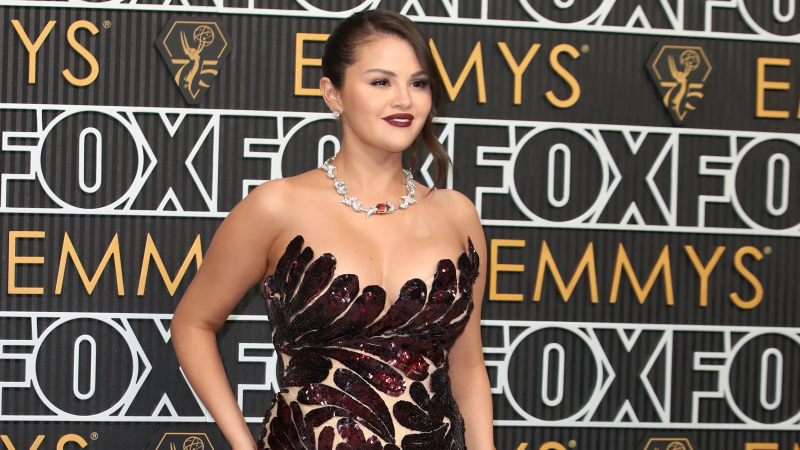
Disclaimer: The copyright of this article belongs to the original author. Reposting this article is solely for the purpose of information dissemination and does not constitute any investment advice. If there is any infringement, please contact us immediately. We will make corrections or deletions as necessary. Thank you.







